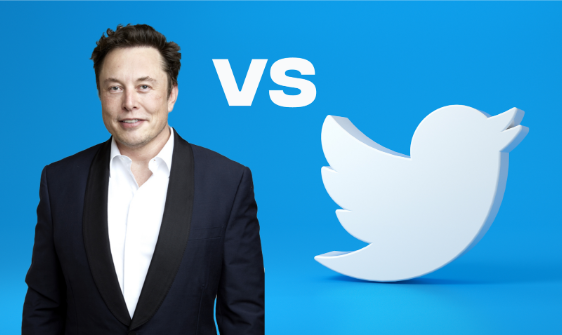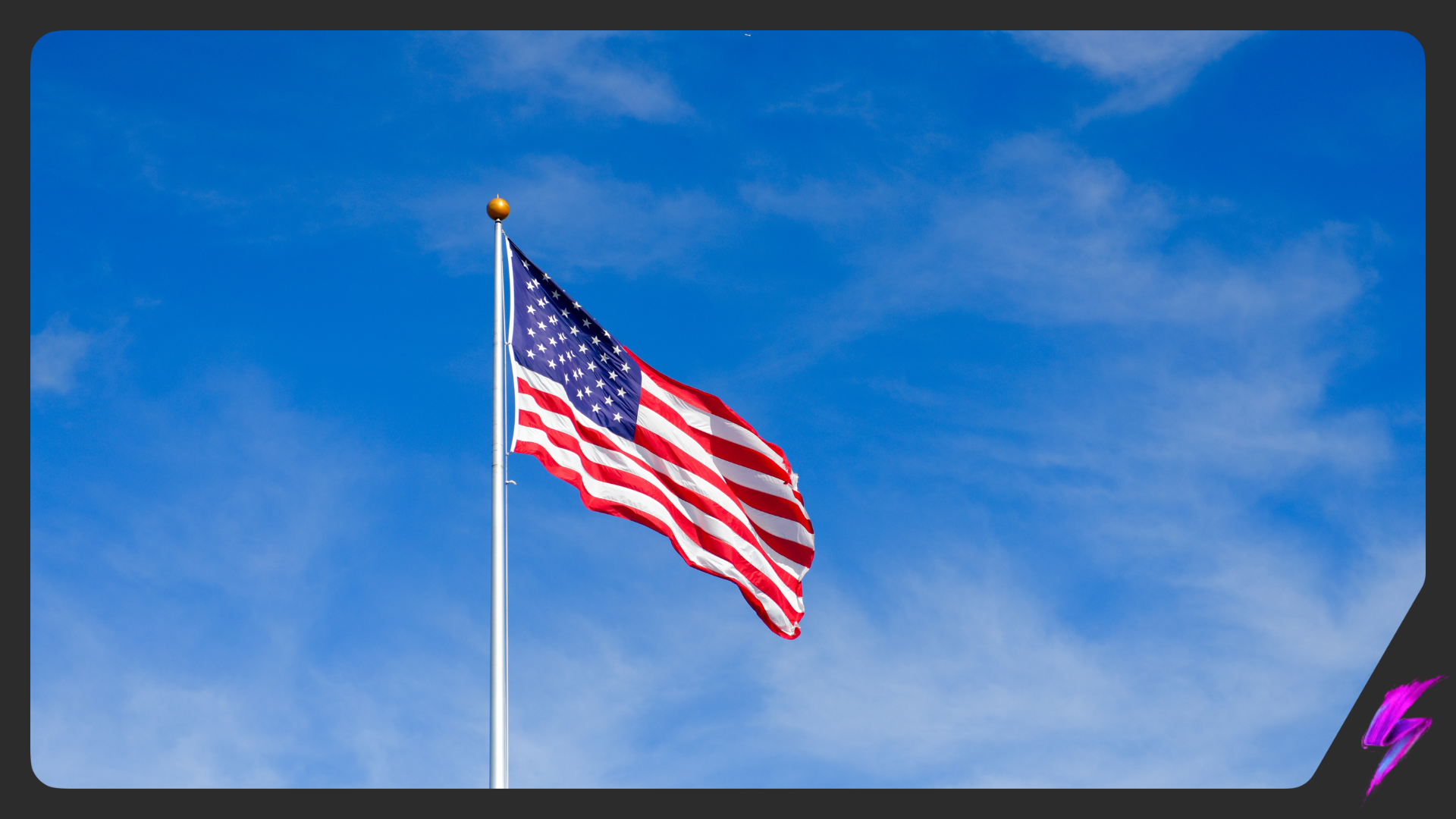A Timeline of Twitter vs Elon Musk
Apr 22, 2022
Industry Trends

In case you missed it, Twitter and Elon Musk have been in cahoots. While the relationship between the two can be described as tumultuous at best, it has just taken a relatively sour turn. If you’ve had trouble keeping up with the events (with daily developments, we’re not surprised), we’ve got your back.
With nearly 83 million Twitter followers, Musk is a popular user and has been vocal in his criticism of the platform’s “restrictions” on free speech and the measures Twitter has taken to restrict accounts that spread misinformation or simplify rhetoric and hate speech.
For the full lowdown on the Twitter versus Elon Musk palaver, check out our complete timeline below.
31 January
Although the bulk of this tension hit in April, the beginnings actually go back to January. It has recently been revealed that Musk began buying Twitter shares on 31st January on an “almost daily” basis.
4 April
After buying shares on a daily basis, Musk reported his 9% stake in Twitter. This is where the story goes public, as a 9% share made Musk Twitter’s largest shareholder.
It was also on 4th April that Musk shared a poll on Twitter, asking whether users wanted an edit button.
Do you want an edit button?
— Elon Musk (@elonmusk) April 5, 2022
Interestingly, Twitter soon confirmed that it has been working on an edit button since December 2021, and that its announcement and development had nothing to do with Musks’ tweet.
5 April
Almost immediately after his announcement of holding 9% shares, Twitter offers Musk a seat on its board.
I’m excited to share that we’re appointing @elonmusk to our board! Through conversations with Elon in recent weeks, it became clear to us that he would bring great value to our Board.
— Parag Agrawal (@paraga) April 5, 2022
Twitter CEO Parag Agrawal announces Musk’s appointment to the board via a tweet. The offer came under the condition that Musk wouldn’t purchase more than 14.9% of Twitter’s remaining stock.
Musk accepted this offer, saying he was looking forward to making “significant improvements to Twitter.”
8 April
Three days later, Vanguard Group revealed it actually has a 10.3% stake in Twitter, meaning Musk isn’t the biggest shareholder anymore.
9 & 10 April
On the day Musk was supposed to join Twitter’s board, he declined the offer on 9th April. The next day, Agarwal tweets an announcement that Musk has declined the board offer.
Elon has decided not to join our board. I sent a brief note to the company, sharing with you all here. pic.twitter.com/lfrXACavvk
— Parag Agrawal (@paraga) April 11, 2022
12 April
Twitter investor Marc Bain Rasella files a lawsuit against Musk alleging that Musk failed to report his Twitter share purchases to the Securities and Exchange Commission (SEC) within 10 days, meaning investors who sold their shares potentially missed out on gains they could have had when his purchase became public, as the share value increased.
It’s also alleged that the delay in stock purchase disclosure meant Musk saved $143 million at the time, buying Twitter stock at a lower price.
14 April
Musk offers $43 billion (£31.58 billion) to buy Twitter and take the company private. In a letter within the SEC filing for the offer to buy Twitter, Musk said he “would need to reconsider [his] position as a shareholder” if the offer was not accepted.
I made an offer https://t.co/VvreuPMeLu
— Elon Musk (@elonmusk) April 14, 2022
Not long after the announcement, Twitter’s stock fell 1.7%, to a price of $45.08—less than what Musk offered per share in his bid ($54.20).
15 April
Twitter announced its board of directors will be employing a “poison pill” deterrent against Musk’s bid.
A poison pill strategy is when current shareholders are allowed to purchase more shares at a discounted price to reduce the ownership interest of the person trying to takeover.
Twitter’s poison pill strategy is expected to kick in if Musk’s stake in Twitter increases to 15% or higher.
18 April
Twitter confirms it will be implementing its poison pill strategy and filed a Form 8-K with the SEC. The strategy confirms that all shareholders (bar Musk) will be able to buy more shares at the discounted price of $210.
25 April
Elon Musk has reached a $44 billion deal to buy Twitter. At first, Twitter’s board was opposed to the takeover and considered implementing a poison pill, but this reluctance has faded following Musk’s confirmation of a funding package for the deal—$21 billion of his own money, alongside funding from other financial institutions.
Twitter has a purpose and relevance that impacts the entire world. Deeply proud of our teams and inspired by the work that has never been more important. https://t.co/5iNTtJoEHf
— Parag Agrawal (@paraga) April 25, 2022
26 April
Following the news that Elon Musk now owns Twitter, Twitter users have been tweeting their opinions about the takeover. While some are excited to see how Elon will improve the “free speech” of the platform, others are wary and consider the purchase a waste of valuable money that could have been spent elsewhere.
men will literally buy twitter instead of solving world hunger
— J.R.R. Jokin (@joshcarlosjosh) April 25, 2022
If Elon Musk owned Twitter…
Musk has repeatedly criticised Twitter for not achieving its “societal imperative” to act as a “platform for free speech around the world.” Musk believes that Twitter “needs to be transformed as a private company” in order to continue serving as a “de facto public town square” and “ahere to free speech principles” to avoid undermining democracy.
Musk’s main issue seems to be with Twitter’s tweet sorting policy. In a TED Talk, he said that “Twitter should match the laws of the country,” which would avoid tweets being demoted based on localised free speech policies.
In addition, Musk has also promised “a site where the public can rate the core truth of any article and track the credibility score over time of each journalist, editor and publication.”
However, in reality, Musk’s idea of a perfect “free speech” platform simply wouldn’t work. Applying a free speech format to social media without suitable moderations would result in an influx of spam, pornography, hate speech, misinformation, conspiracies and violent incitement that would absolutely drive away advertisers.
We understand where Musk is coming from when he demands more transparency from platforms disclosing how their algorithms rank and moderate content, but having a platform constrained only by local law makes no sense.
One of the main criticisms for all social media platforms is their inability to protect users from harmful content and hate speech. A platform dedicated to “free speech” would likely suffer from an unestablished line between the two.
Unfortunately for Musk’s sake, we don’t think his entry into the social media industry would help any of these already prevalent issues.
Our Influencer marketing agency and Social agency are located worldwide, with our agency network based in the USA, UK, UAE and China.
If you want to receive our industry insights, visit our Influencer Marketing & Social Media blog.
@ Socially Powerful
[cta]
Popular Blogs
Most Popular Instagram Hashtags | Tiktok Hashtags | Instagram Monetization | Facebook Banner Size | Snapchat Influencers | Most Subscribed Youtubers | Best Time to Post on Youtube | UK Twitch Streamers | Female Twitch Streamers | Popular Tiktok Songs | Male Tiktok Influencers | Lgbtq Tiktok Influencers | The Rise and Fall of Clubhouse | Influencer Marketing on Clubhouse | LiketoKnowit | Pretty Little Thing Instagram| Top Social Marketing Agencies
Social And Influencer Marketing News + Insights
Get in touch
We'll show you how to start powerful conversation, drive social engagement, build your brand, hit sales targets or meet other goals you have, wherever you are in the world.
Work with us





